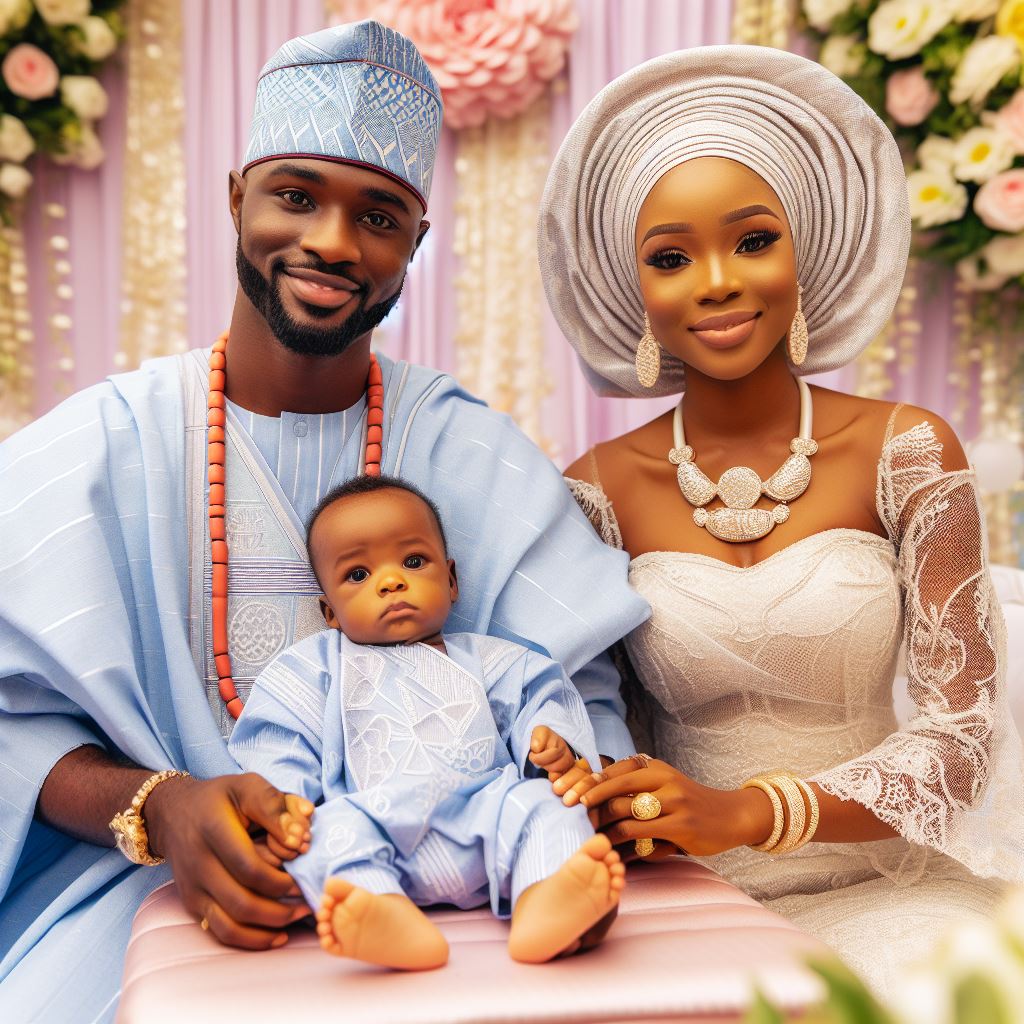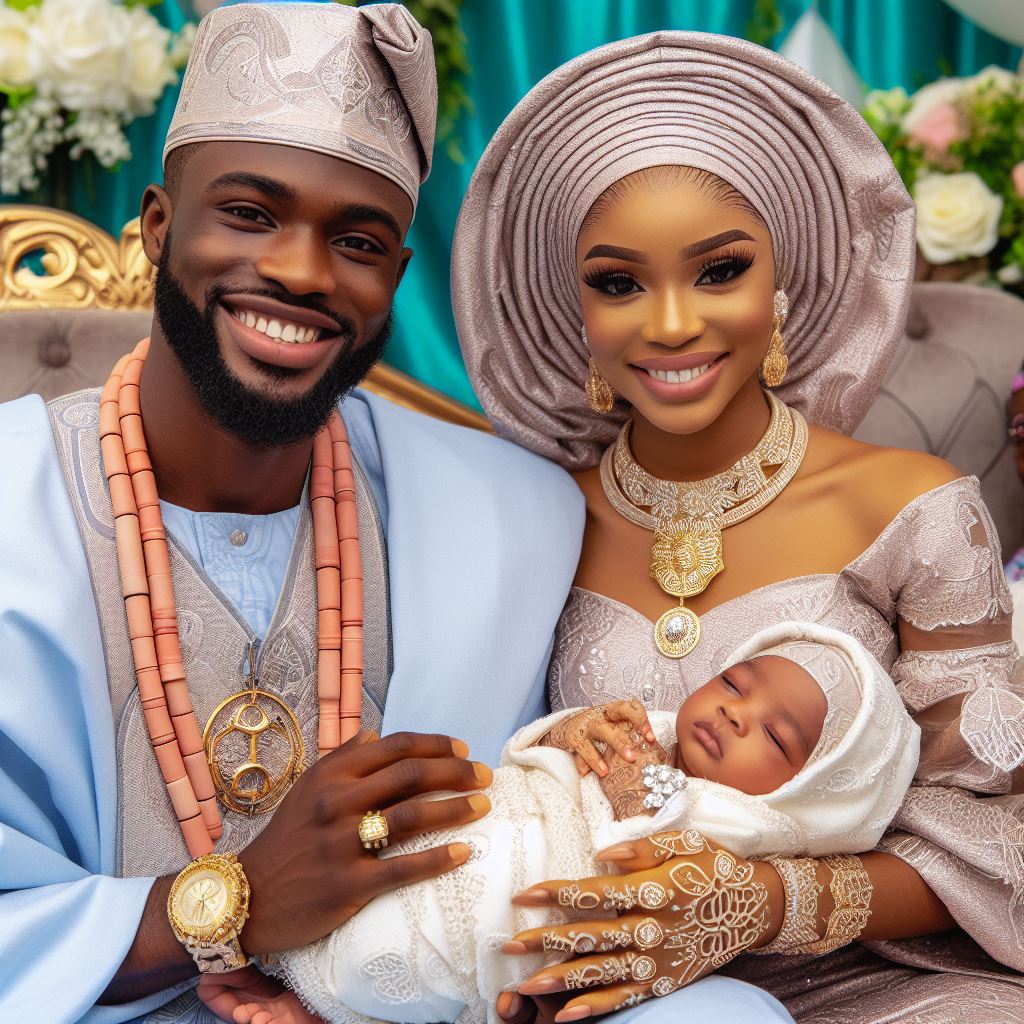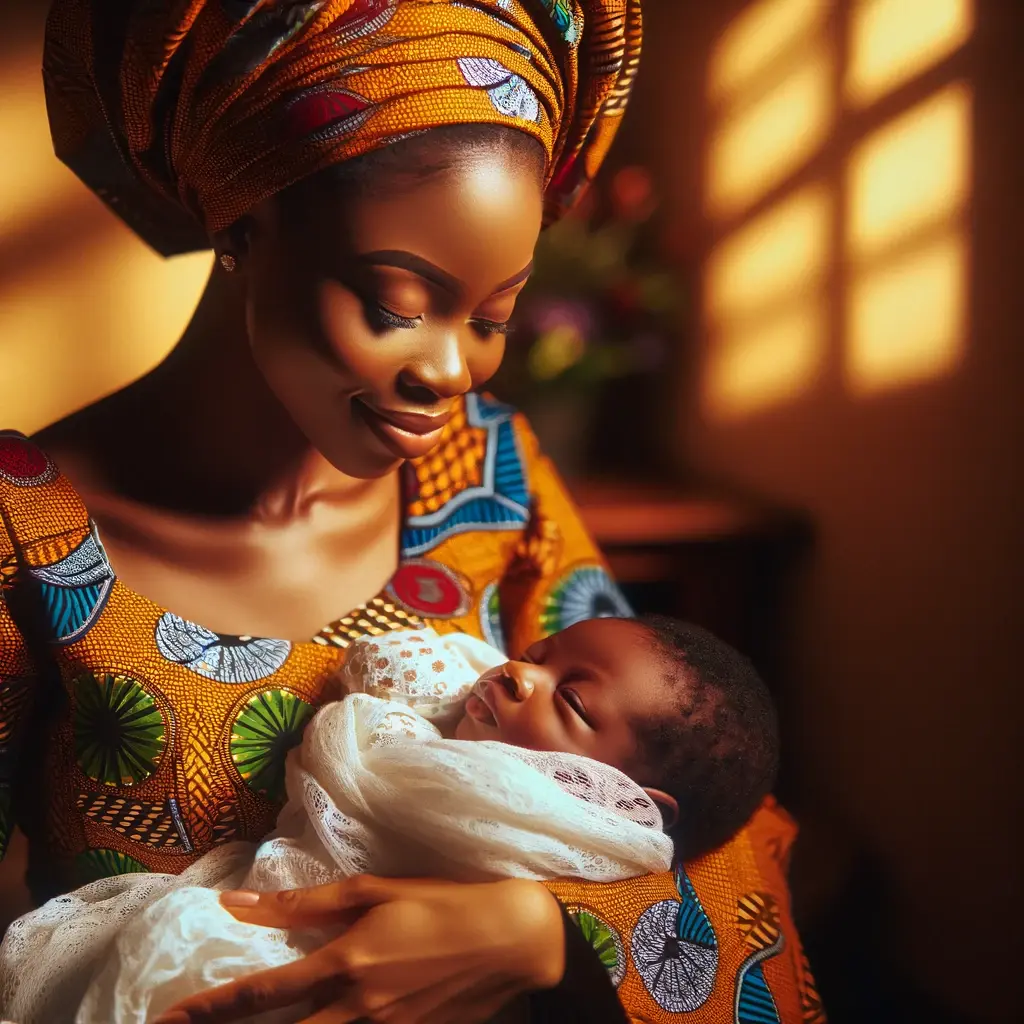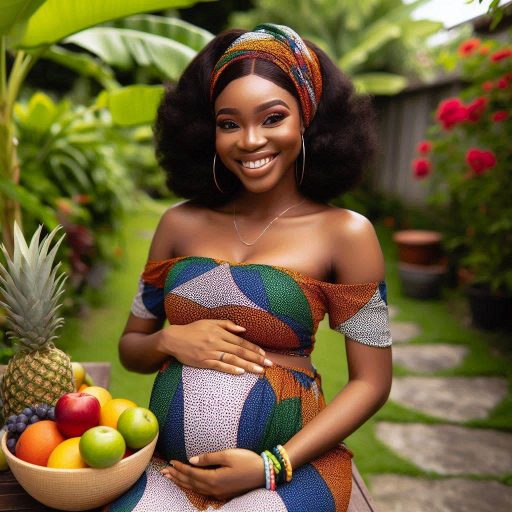Introduction
Nigerian names hold immense cultural and personal significance, reflecting heritage, history, and aspirations.
They encompass the values and traditions of the diverse ethnic groups across Nigeria.
In recent times, there has been a contemporary twist on traditional Nigerian names, blending modernity with cultural pride.
Nigerian names have deep-rooted meaning and are often chosen based on the circumstances surrounding a child’s birth, religious beliefs, or family lineage.
A name can signify blessings, success, or the hope for a prosperous future.
They symbolize the connection to one’s ancestors, honoring their legacy and ensuring continuity.
In recent years, Nigerians have embraced a modern twist on traditional names.
This trend involves incorporating elements of popular culture, globalization, and personal preferences into naming choices.
Parents now blend traditional Nigerian names with Western influences, creating unique and meaningful combinations.
For example, a traditional name like “Amaka” meaning “beautiful” can be transformed into “Amaelizabeth,” combining the Nigerian origin with a touch of English royalty.
Similarly, “Chukwudi,” meaning “God has taken control,” can be adapted to “Chuxilliam,” blending Nigerian heritage with a Western sound.
This modern twist allows Nigerians to bridge the gap between their cultural roots and the evolving world, reinforcing a sense of identity and inclusivity.
It also represents a celebration of diversity and a response to the globalized nature of contemporary society.
In essence, Nigerian names have a profound significance rooted in culture and tradition.
The modern twist on these names showcases the adaptability of Nigerian culture and the ability to embrace change while preserving heritage.
Parenting Made Just for You
Get personalized Parenting Solutions tailored to your child’s needs. Transform your parenting journey with expert guidance in 1-3 days.
Get StartedThis fusion of tradition and modernity reflects the dynamic nature of Nigerian society.
Popular Traditional Names
A. Commonly used Nigerian names
Nigerian names are rich in history and culture, reflecting the diversity and uniqueness of the country.
Here is a list of commonly used Nigerian names along with a brief explanation of their meaning and origin.
- Chika: This popular Nigerian name means “God is supreme” or “God is the greatest” in Igbo. It is often given to both boys and girls born on market days, symbolizing prosperity and blessings.
- Obinna: Derived from the Igbo language, Obinna translates to “father’s heart.” It is a unisex name that signifies the love and warmth a child brings to their parents.
- Ngozi: Meaning “blessing” or “good fortune” in Igbo, Ngozi is a popular name given to girls. It represents the parents’ hope for a bright future filled with prosperity and success.
- Ekpere: This traditional name from the Igbo tribe means “prayer” or “supplication.” It is often given to children to emphasize the importance of faith and seeking divine intervention.
- Adesina: Originating from the Yoruba culture, Adesina means “crown of righteousness” or “royalty opens the ways.” It is a name associated with nobility and leadership.
- Abeni: This beautiful Yoruba name means “we asked for her,” signifying a child who is long-awaited or desired. It represents the joy and fulfillment that comes with the birth of a loved one.
- Ibeji: Commonly used in the Yoruba tribe, Ibeji means “born after twins.” It is given to a child who is the second born of a set of twins, symbolizing their unique status and bond.
B. Other commonly used names
- Zainab: With Arabic origins, Zainab is a popular Nigerian name often given to girls. It means “fragrant flower” and represents beauty, grace, and elegance.
- Ayodele: This Yoruba name means “joy has come home” or “joy brings happiness.” It celebrates the arrival of a child who brings joy and happiness to their family and community.
- Chukwuemeka: Originating from the Igbo language, Chukwuemeka translates to “God has done great” or “God has done something amazing.” It is a name used to express gratitude for divine blessings.
- Folake: Derived from the Yoruba culture, Folake means “honor has come home.” It is given to a child to acknowledge their significant role in their family and community.
- Olumide: This Yoruba name means “my lord has come” or “God has come into my life.” It signifies the presence of a higher power and represents the child’s connection to the divine.
- Chinelo: Originating from the Igbo tribe, Chinelo means “God thinks of” or “God remembers.” It is a unisex name that expresses the belief in divine providence and care.
- Ifeoma: Meaning “good thing” or “beautiful thing” in Igbo, Ifeoma is a popular Nigerian name given to girls. It reflects the parents’ appreciation for the blessing of a precious child.
- Amara: With Igbo origins, Amara translates to “grace” or “mercy.” It is a name that symbolizes God’s favor and reflects the parents’ gratitude for their child.
These are just a few examples of the popular traditional Nigerian names that carry deep cultural significance.
Each name reflects the hopes, beliefs, and values of the Nigerian people and serves as a reminder of their rich heritage.
By giving their children these names, parents honor their ancestors and pass down their traditions to future generations.
Nigerian names truly exemplify the beauty and diversity of the country’s culture.
Factors Influencing Modern Twists
In recent years, there has been a growing trend among Nigerian parents to give their children modern twists on traditional Nigerian names.
This shift in naming practices can be attributed to several factors that have influenced the perception of names in Nigerian society.
The influence of globalization and exposure to different cultures, the impact of social media and popular culture, and the desire for uniqueness and individuality are the major factors contributing to this modern twist on classic Nigerian names.
A. Influence of globalization and exposure to different cultures
Firstly, the influence of globalization and exposure to different cultures has played a significant role in the modernization of Nigerian names.
With the world becoming more interconnected, Nigerians have been exposed to a wide range of names from different cultures around the globe.
This exposure has made parents more open to incorporating foreign elements into their children’s names.
For example, a traditional Nigerian name like “Chinedu” may be given a modern twist by adding an English middle name like “Michael” or “Sophia.”
Unveil the Perfect Name that Tells Your Family's Story
Let us help you find a name that embodies your family's values, traditions, and dreams. Our personalized consultation weaves cultural insights to create a name that's uniquely yours.
Get StartedB. Impact of social media and popular culture
Secondly, the impact of social media and popular culture cannot be underestimated in shaping the way Nigerians perceive names.
Social media platforms like Instagram and Facebook have made it easier for people to connect and share ideas.
As a result, trends and popular culture references spread quickly, and this includes naming trends.
Celebrities and influencers often choose unique and unconventional names for their children, which in turn influences regular Nigerians looking for a modern twist on their traditional names.
This desire to emulate popular figures leads to the adoption of modern twists on classic Nigerian names.
C. Desire for uniqueness and individuality
Furthermore, the desire for uniqueness and individuality has also contributed to the modern twist on Nigerian names.
In a society where traditional names are commonplace, many parents want their children to stand out and have names that are distinct from the rest.
This desire for uniqueness leads to the exploration of different combinations and variations of traditional Nigerian names.
For instance, a name like “Obinna” may be given a modern twist by changing the spelling to “Obinne” or adding a unique prefix like “Eze.”
D. Examples of modern twists on classic Nigerian names
To provide further insight, here are some examples of modern twists on classic Nigerian names:
- Chidimma – This traditional girl’s name meaning “God is good” can be given a modern twist by adding a hyphen and an English middle name, such as Chidimma-Grace or Chidimma-Nicole.
- Olumide – This traditional boy’s name meaning “my wealth has come” can be given a modern twist by shortening it to Lumi or adding a contemporary suffix like Olumidero.
- Ifeoma – This traditional girl’s name meaning “good things” can be given a modern twist by changing the spelling to Ifeomah or incorporating a foreign middle name like Ifeoma-Jane.
- Oluwaseun – This traditional unisex name meaning “God has done wonders” can be given a modern twist by simplifying it to Seun or adding a unique prefix or suffix like Theophilus Seun or Seunade.
In fact, the modern twists on classic Nigerian names are influenced by factors such as globalization and exposure to different cultures, the impact of social media and popular culture, and the desire for uniqueness and individuality.
These factors have reshaped the way parents perceive names and have led to the adoption of unique and unconventional naming practices.
The modernization of Nigerian names reflects the evolving nature of Nigerian society and the desire to create names that are meaningful, distinctive, and reflective of personal and cultural identities.
Read: Baby Naming Traditions in Nigerian Tribes
Creative Modifications to Traditional Names
In recent years, there has been a growing trend of giving a modern twist to classic Nigerian names.
Parents are increasingly choosing to combine traditional names or add prefixes/suffixes to create unique and meaningful names for their children.
These modifications not only honor the rich cultural heritage of Nigeria but also reflect the changing times and evolving preferences of parents.
In this blog section, we will explore some examples of these creative modifications and delve into the meanings behind them.
A. Examples of modifications
- Ayodele – Ade + Olu + Dele: Ayodele is a popular Nigerian name meaning “joy has come home.” It is a combination of three traditional names – Ade, Olu, and Dele – each carrying its own significance. Ade means “crown,” Olu means “God” or “Lord,” and Dele means “happiness.”
- Oladayo – Ola + Dayo: Oladayo is a modern modification of the name Ola, which means “wealth” or “riches.” Dayo means “joy arrives.” Combined, Oladayo signifies the arrival of joy through wealth and prosperity.
- Ayomide – Ayo + Olu + Mide: Ayomide is a fusion of Ayo, which means “joy,” Olu, meaning “God” or “Lord,” and Mide, meaning “I have come.” The name represents the joyous arrival of a child who is seen as a gift from God.
- Ifeoluwa – Ife + Olu + Wa: Ifeoluwa combines Ife, meaning “love,” Olu, meaning “God” or “Lord,” and Wa, meaning “come.” The name symbolizes the divine gift of love and reflects the hopes of parents for their child to spread love wherever they go.
- Adesola – Ade + Sola: Adesola is a modern twist to the traditional name Ade, which means “crown.” Sola means “wealth.” Together, Adesola signifies a child who is destined for greatness and prosperity.
B. More Examples
- Ayoola – Ayo + Oluwa: Ayoola is a combination of Ayo, meaning “joy,” and Oluwa, meaning “God.” This name serves as a reminder of the joy that God brings and is often given with the hope that the child will follow a path of joy and righteousness.
- Omolara – Omo + Lara: Omolara merges Omo, meaning “child,” and Lara, meaning “the sea.” This combination represents the child as a precious gift from God, as valuable as the vastness of the sea.
- Olumide – Olu + Mide: Olumide combines Olu, meaning “God” or “Lord,” and Mide, meaning “I have come.” The name signifies a child who is a gift from God and is destined to make a significant impact on the world.
- Adeola – Ade + Ola: Adeola is a fusion of Ade, meaning “crown,” and Ola, meaning “wealth” or “riches.” This name symbolizes a child who is destined for success and prosperity.
- Ayotunde – Ayo + Tunde: Ayotunde is a combination of Ayo, meaning “joy,” and Tunde, meaning “return of the crown.” The name represents the joyous return of honor, blessings, and success to the family.
C. The meanings behind these modifications
These creative modifications to traditional names provide parents with the opportunity to retain the cultural significance of Nigerian names while also adding a personal touch.
Each name carries its own unique meaning and tells a beautiful story about the child’s destiny, joy, love, and prosperity.
As more parents embrace these modifications, the Nigerian naming landscape continues to evolve with a blend of tradition and innovation.
Read: The Art of Naming: Nigerian Names Guide
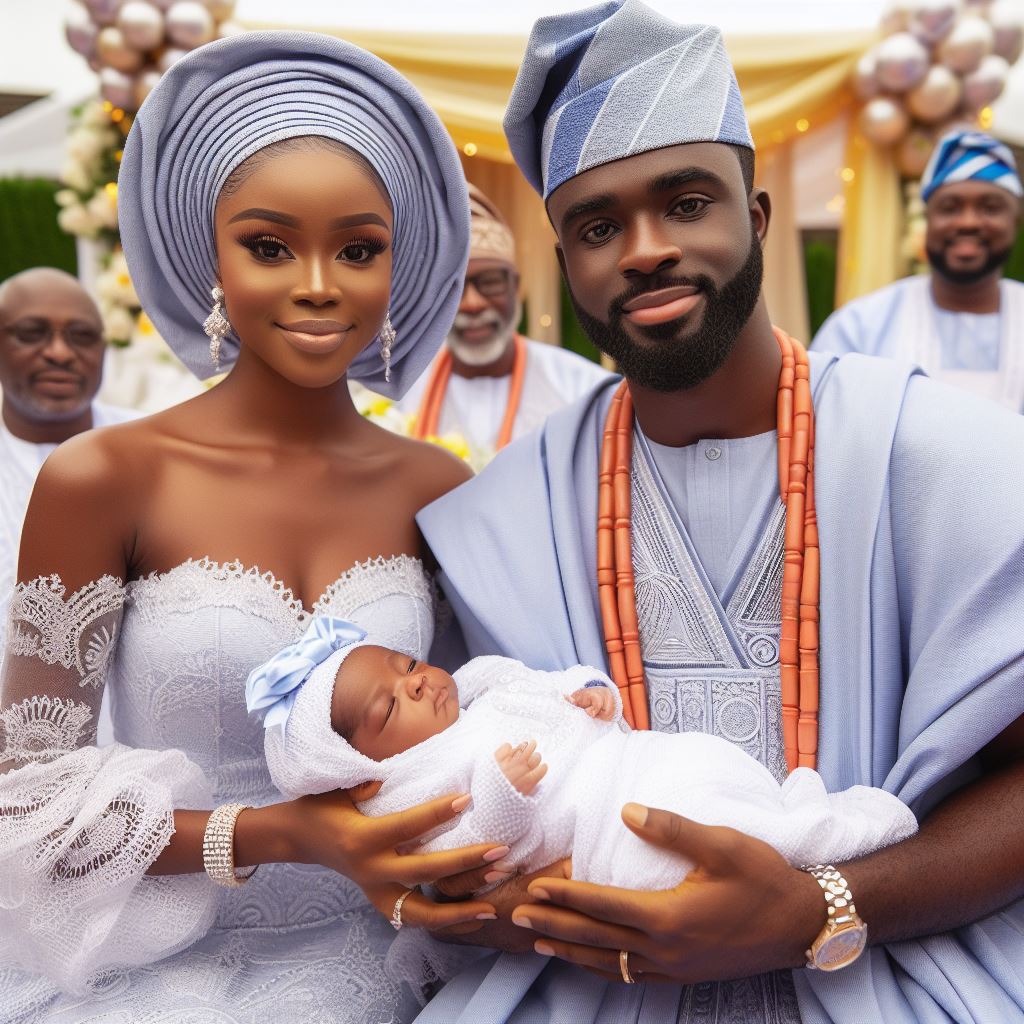
Keeping the Connection to Nigerian Heritage
A. Importance of preserving Nigerian cultural identity through names
In a world that is continuously evolving and becoming more globalized, it is crucial to preserve and maintain one’s cultural identity.
One aspect that plays a significant role in this preservation is the naming of individuals.
Names serve as a link to our heritage, giving us a sense of belonging and connection to our roots.
This holds true for Nigerians, who have a rich cultural heritage and a wide array of traditional names.
Nigeria, with its diverse ethnic groups, boasts a myriad of unique and meaningful names.
These names often hold deep cultural significance, reflecting historical events, values, and traditional beliefs.
They embody the essence of Nigerian identity and provide a sense of pride and belonging to individuals and their families.
However, in recent times, there has been a shift towards more modern and westernized names, leading to a loss of connection to Nigerian cultural heritage.
Various factors drove this shift: globalization, mass media influence, and the aspiration to follow global trends.
While there is nothing inherently wrong with adopting modern names, it is essential to strike a balance between embracing modernity and preserving cultural identity.
B. Maintaining the Nigerian essence while giving a modern touch
To maintain the Nigerian essence while giving a modern touch, one option is to explore variants and adaptations of traditional names.
For example, instead of completely discarding an old Nigerian name, parents can consider using a modernized version or adding a contemporary middle name.
This approach allows individuals to retain a connection to their cultural heritage while still incorporating modern elements into their names.
Another way to preserve Nigerian cultural identity is by using Nigerian names as middle names or as a second given name.
This practice not only gives individuals an opportunity to showcase their cultural heritage but also allows for the flexibility of using modern first names.
It strikes a perfect balance between embracing modernity and preserving Nigerian roots.
C. Creating unique blends of traditional Nigerian names with modern ones
Furthermore, creating unique blends of traditional Nigerian names with modern ones can also be an effective approach.
This fusion modernizes while preserving Nigerian naming traditions, blending contemporary elements with their essential essence.
For example, a blend of the traditional name “Adesua” and a modern name like “Grace” can result in a beautiful and meaningful name like “Adesuagrace.”
Additionally, educating Nigerians, especially the younger generation, about the importance of preserving their cultural identity is crucial.
Parents, schools, and cultural institutions should emphasize the significance of names in cultural preservation.
Workshops, cultural activities, and storytelling sessions actively showcase Nigerian names, revealing their meanings and historical significance.
Moreover, there should be a concerted effort to encourage Nigerians to embrace and appreciate their traditional names.
Traditional naming ceremonies celebrate, recognizing significant contributors to Nigerian culture, showcasing names in popular media.
In general, preserving Nigerian cultural identity through names is of utmost importance in maintaining a strong connection to our heritage.
By embracing modernity while still incorporating traditional elements, individuals can strike a balance between adopting contemporary names and preserving Nigerian roots.
It is crucial to educate and encourage Nigerians to appreciate the significance of their names, ensuring that Nigerian cultural heritage remains alive for generations to come.
Read: Nature-Inspired Names for Nigerian Babies
Controversy and Challenges
A. Criticism some may face when modifying traditional Nigerian names
Modifying traditional Nigerian names has been a subject of controversy among individuals seeking a more modern twist.
While some embrace this change as a form of self-expression, others argue that it erodes cultural heritage.
Critics argue: altering these names disrespects customs passed down through generations, undermining traditions.
One of the main criticisms faced by those who choose to give their children modified Nigerian names is the accusation of cultural appropriation.
Traditionalists argue that using these names without a deep understanding of their cultural significance is disrespectful and inappropriate.
They believe that individuals who modify Nigerian names simply desire to be trendy without recognizing the rich history and symbolism behind these traditional names.
Additionally, critics claim that modifying Nigerian names can lead to a loss of cultural identity and a dilution of traditions.
They worry that future generations may abandon the authentic Nigerian heritage in favor of names that are more Westernized or influenced by other cultures.
The belief roots in preserving Nigeria’s cultural identity by retaining the original names’ form.
B. Handling negative reactions and staying true to personal choices
Negative reactions to modified Nigerian names can be hurtful and challenging to navigate.
However, it is essential to remember that personal choices should be respected.
Here are some tips for handling negative criticism and staying true to your decision:
- Educate yourself: Take the time to understand the historical and cultural context of Nigerian names.
This knowledge will allow you to better articulate your reasons for modifying a traditional name. - Communicate openly: Engage in conversations with family, friends, and community members to explain your perspective.
Sharing your intentions and the thought process behind your decision may help others understand and respect your choice. - Emphasize personal values: Highlight how the modified name reflects your personal values, beliefs, or aspirations.
Show that your intention is not to disrespect or abandon Nigerian culture, but rather to honor it in a contemporary way. - Seek support: Surround yourself with individuals who respect and appreciate your decision.
Find communities or online groups where people have had similar experiences and can provide guidance and encouragement. - Stay confident: Remember that choosing a modified Nigerian name is a personal decision and one that should make you happy.
Embrace the uniqueness and beauty of your chosen name, despite any negative reactions you may encounter.
It is important to strike a balance between preserving cultural heritage and embracing modernity.
Modified Nigerian names can be a way to honor traditions while still allowing for personal expression and growth.
By handling negative reactions with grace and conviction, individuals can continue to celebrate their Nigerian roots while forging their own path.
Read: Historic Nigerian Names Making a Comeback
Benefits of Modern Twists on Nigerian Names
Modern twists on classic Nigerian names have gained popularity in recent years.
These unique names offer several benefits, including:
A. Expression of individuality and creativity
- By incorporating modern twists into traditional Nigerian names, individuals can express their unique personalities.
- It allows parents to think outside the box and choose names that stand out from the crowd.
- People showcasing modern twists on names break tradition, embracing change and refusing to be bound by it.
B. Representation of the modern Nigerian society
- Nigerian society today is a blend of tradition and modernity, and modern twists on names reflect this.
- These names symbolize the evolution of Nigerian culture and its adaptation to the contemporary world.
- Parents who opt for modern twists on names demonstrate their connection to the present-day Nigerian society.
C. Encouragement of cultural exchange and diversity
- Modern twists on Nigerian names often incorporate elements from different cultures, promoting diversity.
- Parents may choose to combine Nigerian and foreign names to celebrate their cultural heritage and intercultural relationships.
- These names encourage dialogue and understanding between different cultures, fostering harmony and acceptance.
Overall, the benefits of modern twists on Nigerian names are immense.
They allow individuals to express their individuality and creativity, while also representing the dynamic nature of the modern Nigerian society.
Moreover, by incorporating elements from different cultures, these names foster cultural exchange and diversity, promoting unity and understanding.
Conclusion
Nigerian names hold great significance and have evolved over time. They serve as a reflection of cultural heritage, beliefs, and values.
It is important to remember and preserve this rich cultural aspect.
However, embracing modern twists on classic Nigerian names can be an exciting way to keep the tradition alive while also reflecting the changing times.
It allows for creativity and individuality without disregarding the importance of cultural identity.
By encouraging the use of modern twists, we can foster a sense of pride and appreciation for Nigerian culture.
It also opens up opportunities for cultural exchange and understanding, as people from different backgrounds learn and appreciate the beauty of Nigerian names.
In a fast-paced and globalized world, it is crucial to hold onto our cultural heritage and traditions.
Nigerian names bridge the gap between the past and the future, connecting generations and preserving our identity.
So, let us embrace the evolution of Nigerian names, celebrating the past while embracing the present.
Let us respect and preserve our cultural heritage while also welcoming modern twists that reflect our changing world.
Nigerian names are a beautiful fusion of tradition and progress, and they deserve our love and admiration.

